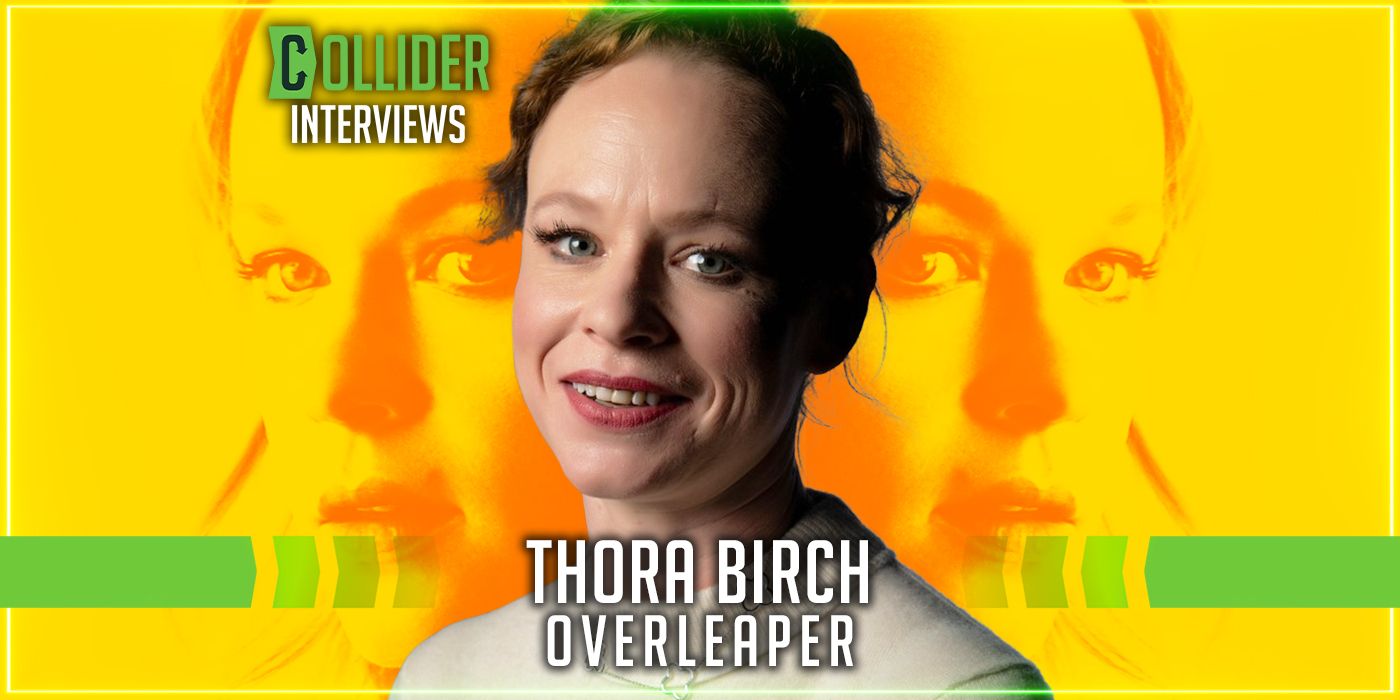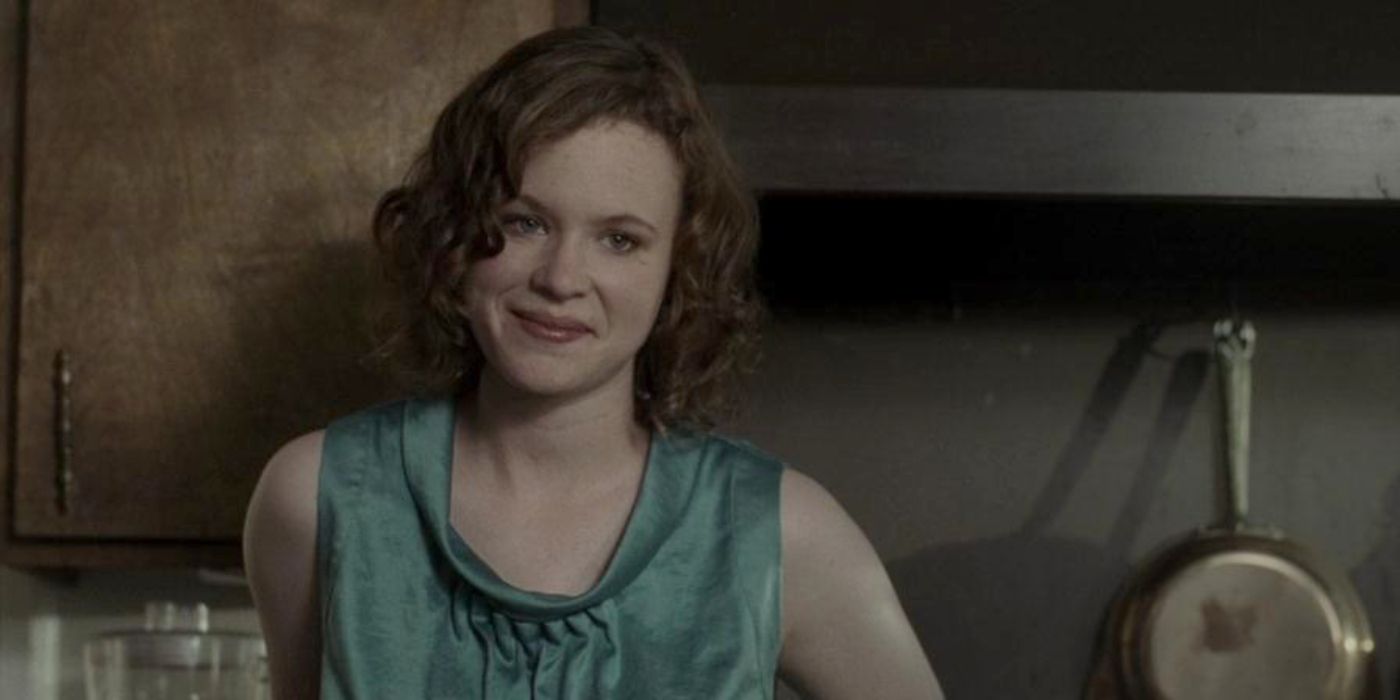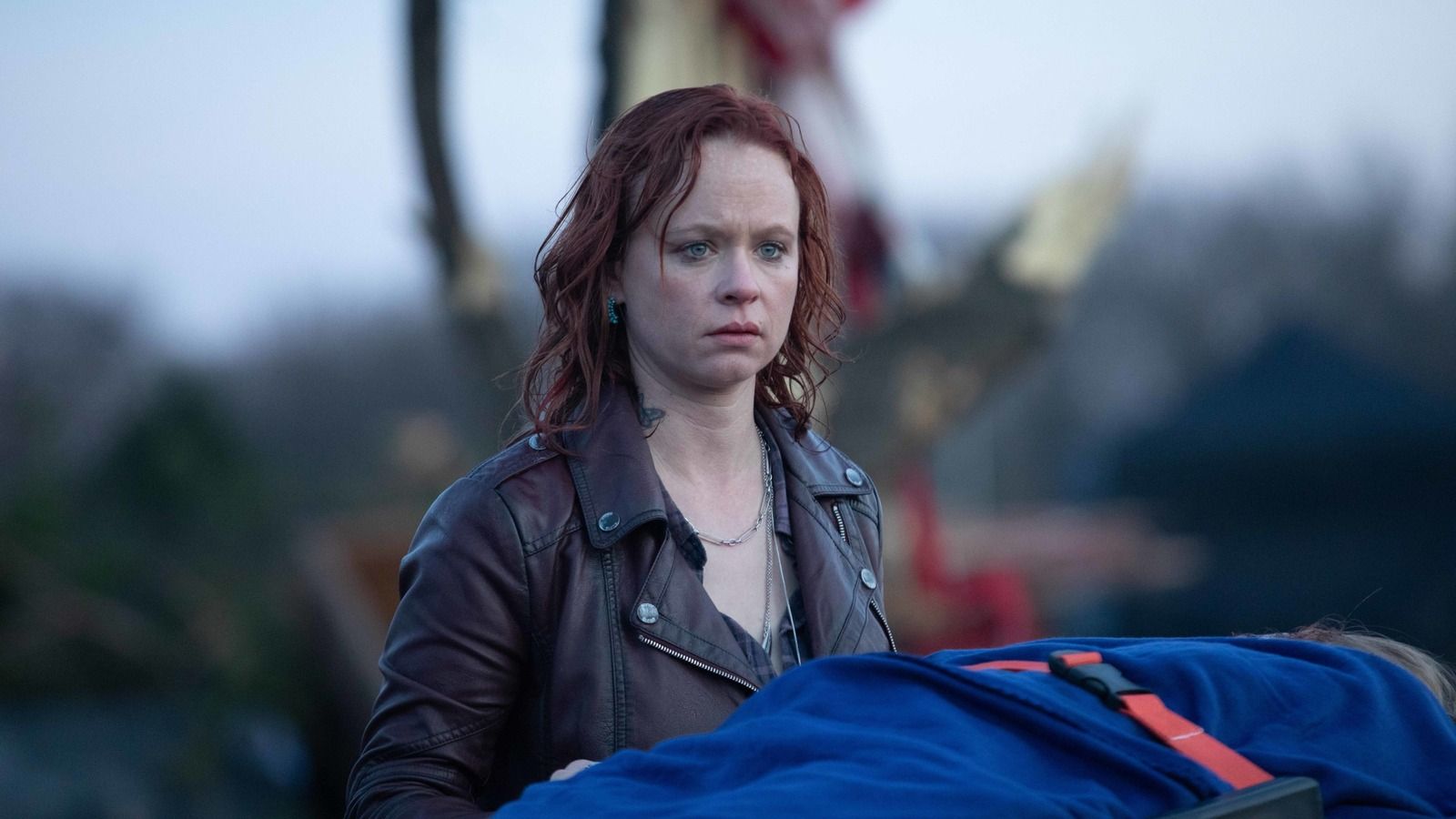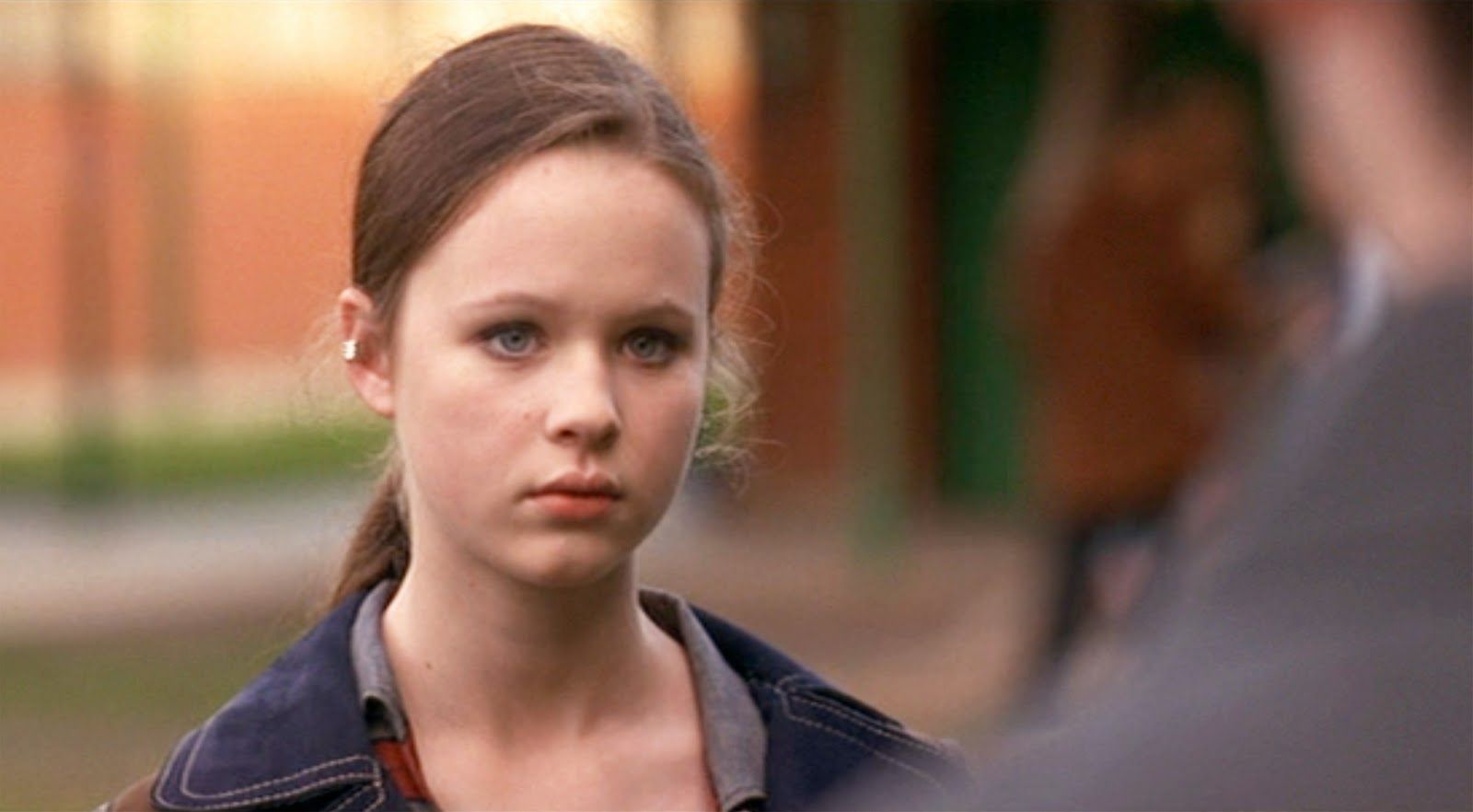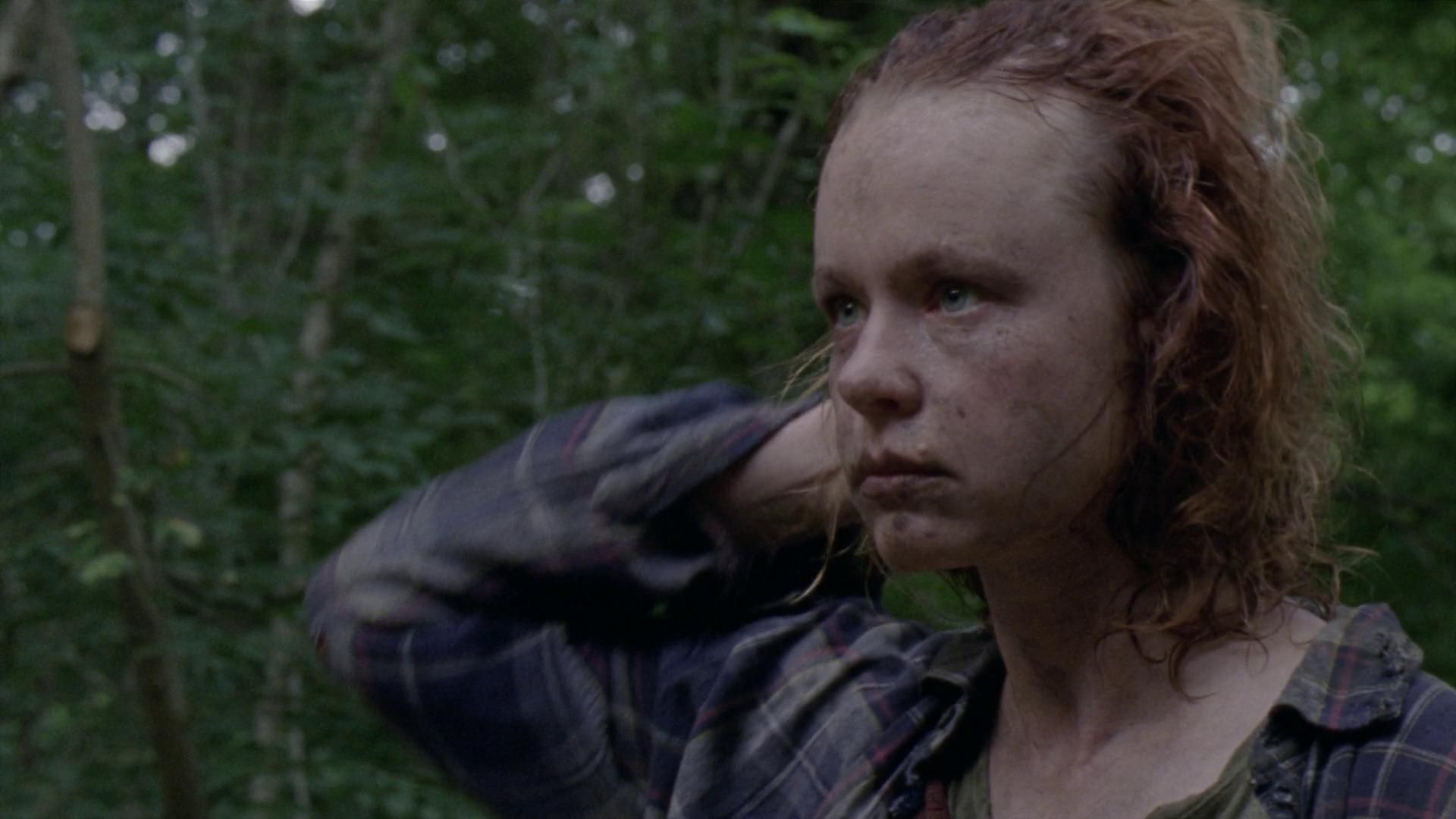The espionage thriller Overleaper, a 10-episode fiction podcast available through the audio entertainment company Realm, tells the story of Special Forces Staff Sergeant Audrey Beach (voiced by Thora Birch), an American soldier who goes on a top secret mission that results in her coming face-to-face with her doppelgänger from another universe. This Overleaper is on a quest for revenge and decides to take Audrey’s place to complete her mission, but Audrey is not willing to just accept that fate and decides to attempt to thwart the plan in motion.
During this 1-on-1 interview with Collider, Birch talked about why she was so interested in telling this story, her excitement over playing these dual characters for a podcast, how she approached getting into the headspace for this material, differentiating the two roles, and whether she’d like to do more podcasts in the future. She also talked about what excites her about a possible project, the meaningful experience she had making Paradise, how she became a bit too attached to her Ghost World character, her experience on The Walking Dead, and whether we might still see her in Wednesday (she left the series before filming had completed).
Collider: This was so much fun to listen to. The only thing that’s a bit of a bummer is that it’s not live-action because how cool would it be to actually have this done as a movie?
THORA BIRCH: For sure.
Was that something you ever wished was the case?
BIRCH: Look, Hollywood is still doing some cool movies, but Hollywood is a lot different than it was like 3, 5 and 7 years ago. That’s what’s so interesting about the fictionalized podcast space. It’s almost a return to the old radio dramas and sagas from the twenties and thirties that were pretty much the only access to storytelling for a lot of households, in any live fashion. It’s an interesting process, as well. One nice thing about working in the podcast space is that I didn’t actually have to go through the harsh physical positions that the character is in. I didn’t have to get thrown into some weird vortex tunnel and into a puddle of what people would say is urine, getting to act all of that out in a physical away. And I didn’t have to go through boot camp in preparation for the role. It was a perk.
When this came your way, had you listened to these types of podcasts before? Did you know exactly what this would be? What was your reaction to a project like this?
BIRCH: They had me at the word podcast, and then fictionalized was even better. Podcasts are such a wide open space and there are so many incredible ones out there. I had listened to a number of quasi-fictionalized ones. This was so jam-packed and action-loaded, with a dual role, in a way. I’m playing two versions of the same person. So, all of those elements, and the playing around with space, time, and continuing parallel dimensions and realities, is always an interesting topic to pick up and explore. It’s a little bit of a rabbit hole. All of those elements combined with the fact that this was the first time I had done a project like this, I was excited. And then, the characters of Audrey and the Overleaper were personalities that I responded to.
There really are so many interesting projects in this medium right now that are so interesting, and a wide variety of actors are doing them, in all different genres. It’s also amazing how, when they’re done right, you can immediately start visually seeing what’s going on.
BIRCH: A lot of that is to Realm’s credit. They make you feel like there’s a screen somewhere that you’d be watching this on. The quality of work that they do is really good. It was interesting for me because I came in somewhat at the last second and they had already recorded a lot of the other characters’ voices. And so, while I was working on it, I tried to hear some of what the other characters had recorded and what they sounded like, to try to figure out how to react to that person’s voice and the style and the imagery they were bringing it to it, through their characterization of vocalization. Overleaper has a very distinct style.
Working in this medium also means that you have a lot of dialogue. There’s a lot of talking because, unlike with live-action or even with the animation, you can’t really have silences or react with only a facial expression since nobody would know what’s going on. Do you have to do anything to prepare for that? Do you have to just pace yourself? Did you ever lose your voice?
BIRCH: That was a concern because, two days before I went in for the first session, I was recovering from a cold. The big concern was, do we pace it out, in order to really prepare, or do we just slam through it, in order to keep the energy and tone? Working out at a faster pace for me was a benefit because I enjoy flying by the seat of my pants. I like to just get in there and start doing it, and figure it out as I’m going along. For me, the big challenge on this was making sure to have the Overleaper sound like she had experienced a year’s worth of different experience, and then differentiate that from Audrey, who was a little bit more grounded, naturally, and not hardened by the training. As far as Audrey knew, her daughter wasn’t dead. That’s a huge difference. There was enough there to work with, but you’ve gotta just dive in and knock it out.
Do you still do research for a performance like this, to help you figure a character out, or is it different preparation for a podcast?
BIRCH: If you have the opportunity and the time, you should always do research. That’s my go-to, especially when you’re assembling a podcast. Things move so quickly. I also feel like the writers and the director on Overleaper had already done a lot of that. For me, it was just getting comfortable with militaristic language. I’d spend a couple of hours with the dialect coach, learning certain Soviet-sounding words and phrases, and learning about how their spy world works compared to ours. There was a lot there. Honestly, there was so much already in the writing that I could just go for it. It was just a matter of putting myself in a headspace of somebody who is battle tested and has done it all, and it bound to do it again.
When it comes to the projects that you do, what do you look for? What gets you interested in something? Is it just an instinct? What gets you excited about something?
BIRCH: What always excites me the most is the sense that maybe I haven’t seen something, or heard something, in this case, quite like it before. I also tend to lean towards stronger, opinionated female characters. Anything that can provide you with an opportunity to exercise your creative juices in a new way is always the most inspiring.
Do you tend to know pretty quickly, if something is for you or not? Are you someone who will read to the end of the script because you feel like you have to at least finish it?
BIRCH: It depends on the script. I don’t know. It’s hard to say. Sometimes I’ve read things where maybe I didn’t get the vision, but then somebody can come in and explain it to me and says, “Look, the words might feel like this on the page, but what we’re going for is more in this area or that area.” Also, I love nuance. Things don’t need to be so black and white for me. I like to play in the gray areas.
You’ve been in this business since you were very young. What’s the earliest experience that you had on a set, that was really positive and a really memorable experience for you, that made you feel like you learned from it and that it was really a turning point for you, as an actress?
BIRCH: That’s tough because there have been different phases in my life where my understanding of acting and what it is changed. It definitely changed every other three or four years, when I was a kid, and then, as I got older, it leveled out. I would say the first time I felt like, “This is a job and something that I need to put effort to and create, and not just portray myself saying these words,” was when I was nine and I was in a film, called Paradise. That was directed by Mary Agnes Donoghue, and Don Johnson and Melanie Griffith were the two leads. My co-star was Elijah Wood, and it was a small family drama. It was an indie that, for a kid, had very dark material. My character was a smart mouth, but with an internal life. In preparing for those scenes, the director would spend a lot of time with Elijah and I, getting us into the headspace and the mood that she was looking for, and trying to explain how these characters were saying one thing, but really feeling all these other things. When I was done filming that, it started to hit me, “Wow, that was actually me really acting and really being an actor,” and I started to understand what that meant, outside of just wearing what they told me to wear and standing where they told me to stand.
People still talk about American Beauty, but Ghost World will always be a personal favorite of mine. Do you have a film that you’ve done that holds a special place in your heart?
BIRCH: A number of them do, for different reasons, but I would agree with you that Ghost World is one of them. Just as far as, if I was just gonna analyze the character alone, Enid was somebody that I spent a lot of time with. When I was done filming, so much of her essence, personality, and worldview stuck with me for a little bit too long after that, to the point where it started messing with my own personal relationships, friendships, and stuff like that. I had an unhealthy attachment to that character, but now I just love her in the context that she exists for a lot of other people. There are also others that I love, if not just as much, then pretty close, for different reasons.
That film still feels so special because it feels like there is still no other film like it.
BIRCH: Thank you. There are a lot of disaffected youth movies, but I’ll take it.
Those characters in that particular world felt different.
BIRCH: That had a lot to do with our director, Terry Zwigoff, and the graphic novel’s creator and co-writer Dan Clowes. They created all of that. I was just there to execute what was already on the page.
I was excited that you were going to be in Wednesday, and then disappointed to learn you had left the series. Do you know if we’ll still see you in that, when it comes out?
BIRCH: I’m not sure. They have a lot of creative license. There were a lot of changes going on already, when I was there. It’s possible, but I wouldn’t know. I’m out of the loop.
Your character on The Walking Dead was another standout character. Did you know what would happen with that character, when you signed on? Did you always know what her end point would be?
BIRCH: The Walking Dead has a high degree of secrecy and they’re a well-oiled machine. I came on in Season 10, so they already knew what they were doing. I was familiar with the broad strokes. I think that every actor that goes on The Walking Dead just assumes that they’re gonna die, at some point. Whether they tell you or not, you pretty much know that’s gonna happen. It’s just a matter of when it will happen. I was clear on the broad strokes of the character, but there were a lot of things that I didn’t know.
What is that like to play, as an actor? Do you try to convince them not to kill you off? Do you ask them to give you a really cool death scene? How does that work?
BIRCH: I’m always down for a death scene. One year of The Walking Dead, when you’re shooting it, just because of the physical situation with working in the summer, in and around Atlanta, and outside, is incredibly uncomfortable. You’re like, “I’d love to come back, but if not, that’s cool too.” If you get a good death, then you’re winning, and I was happy with mine. She went out fighting.
Would you like to do another one of these podcast projects? Is it something you’re hoping to do more of?
BIRCH: Oh, absolutely. I think it would be a lot of fun. I think there’s also so much opportunity for different types of genres. The fact that Realm is able to thrive in a fast-paced, action, sci-fi realm is super exciting. We’re not outta stories. I’d love to do 15 more of these. You can play in these in a variety of different ways and it’s so easy to produce these, compared to an indie, or a major movie or television show.
Overleaper is available to stream at Realm and on all podcast platforms, including Apple Podcasts, Spotify and Stitcher.

